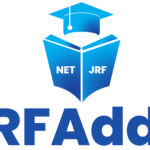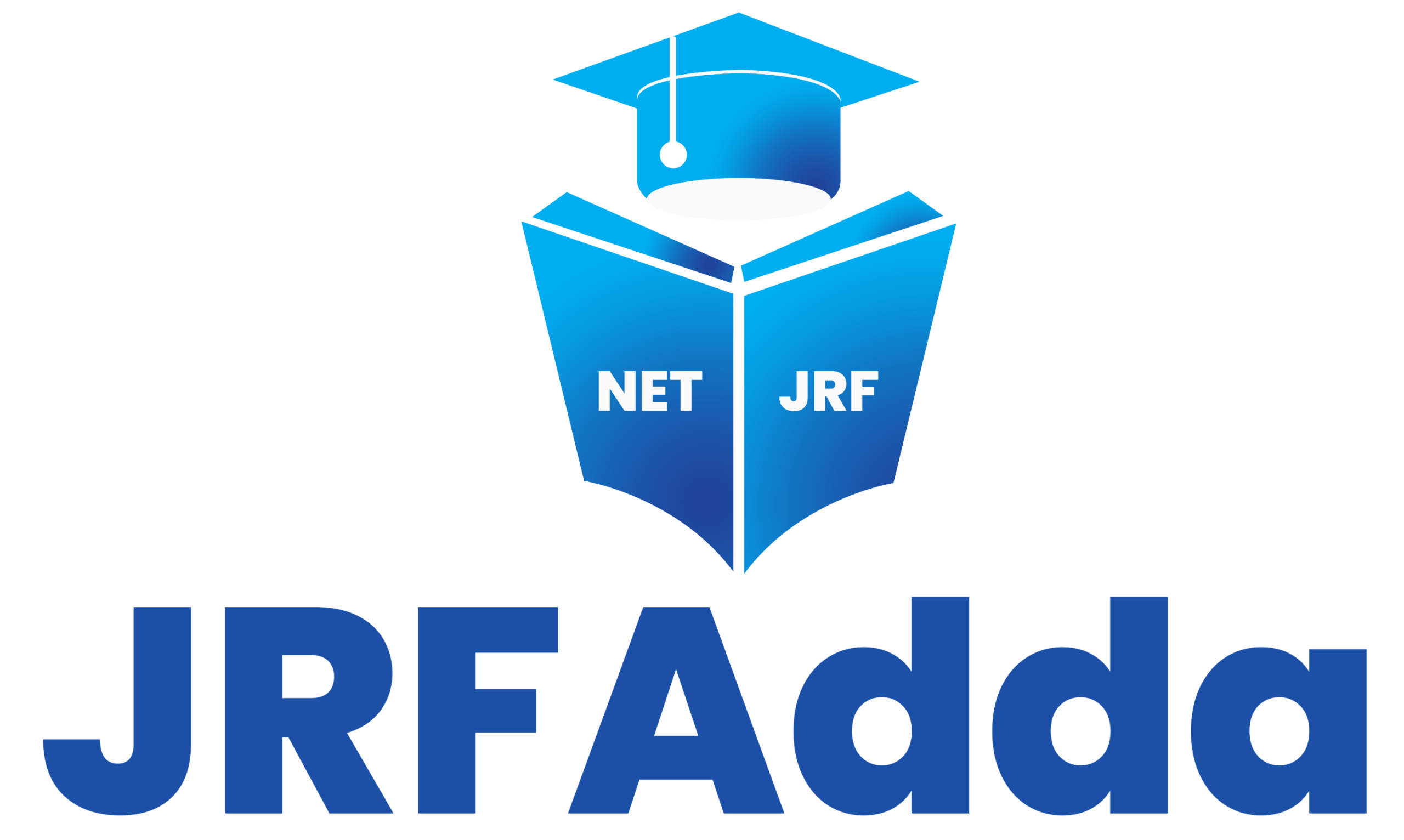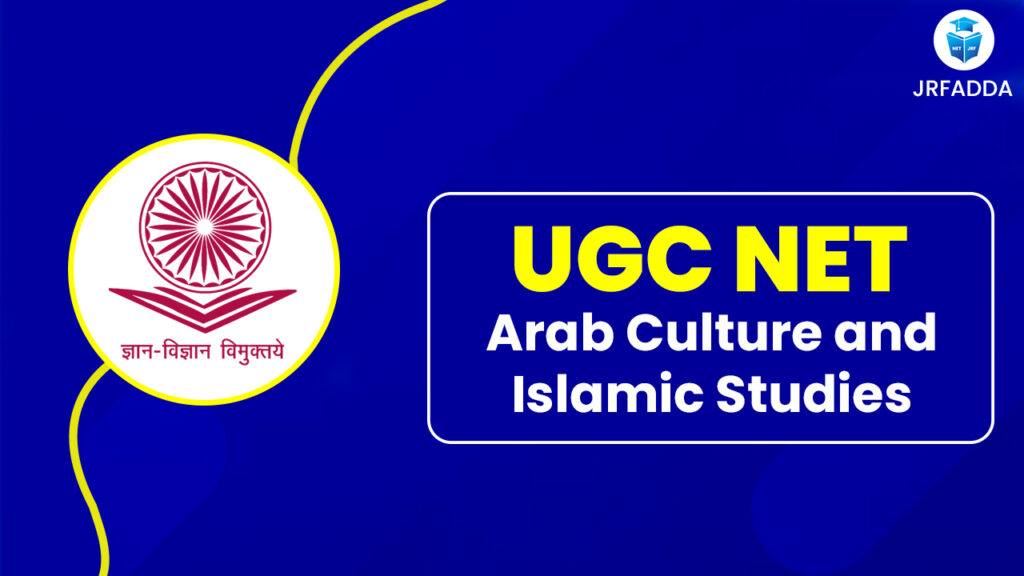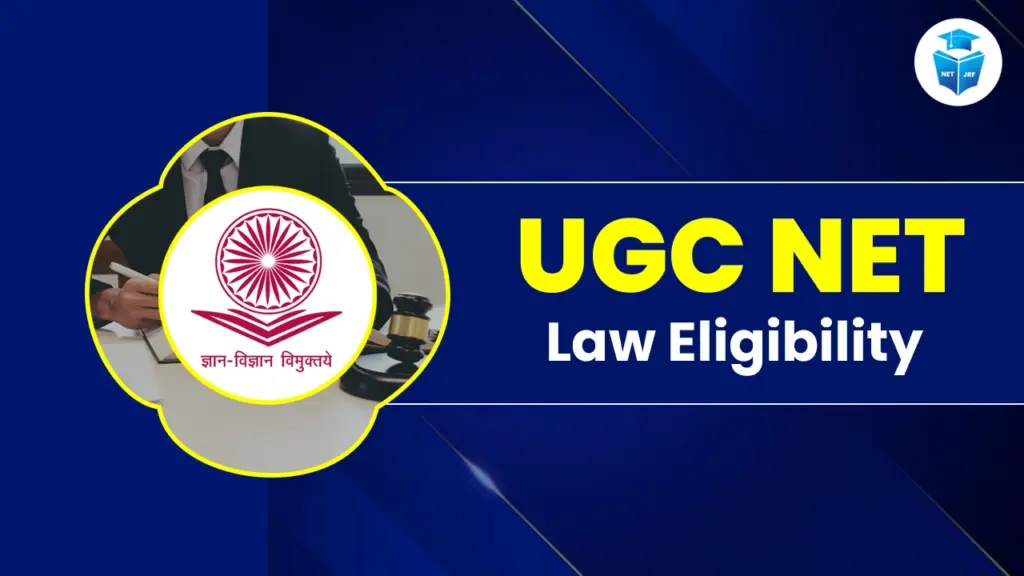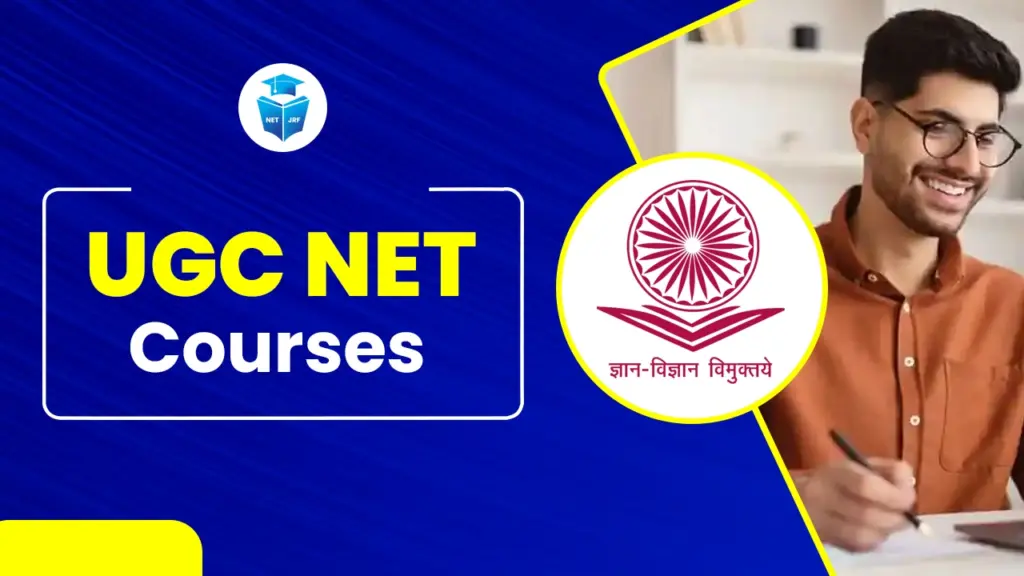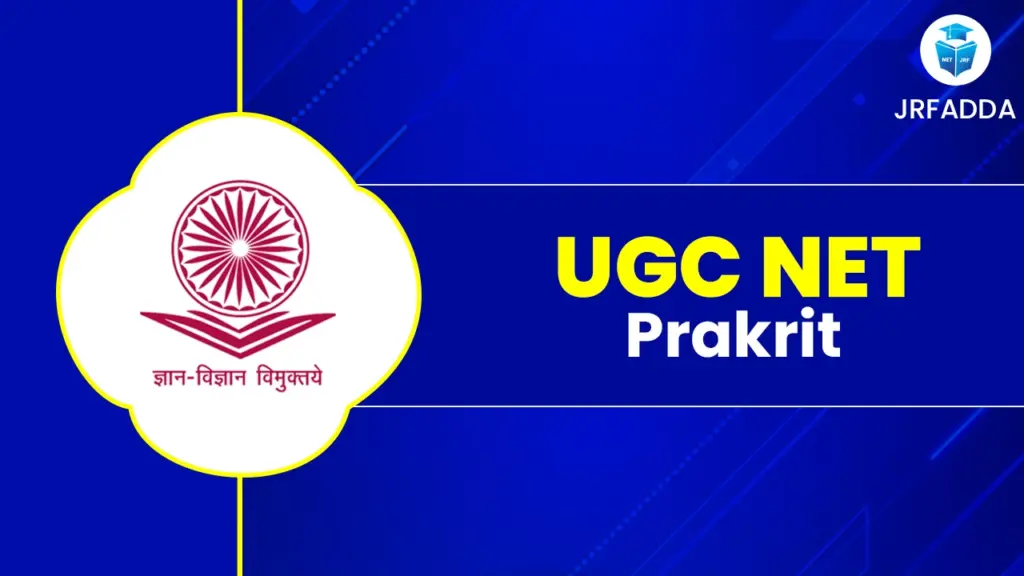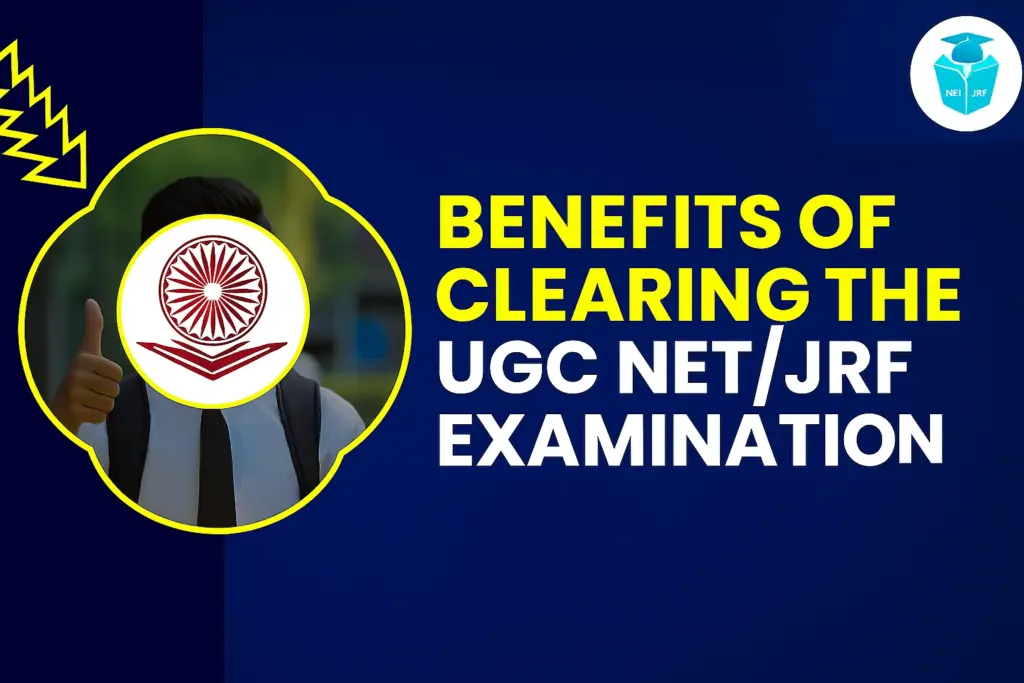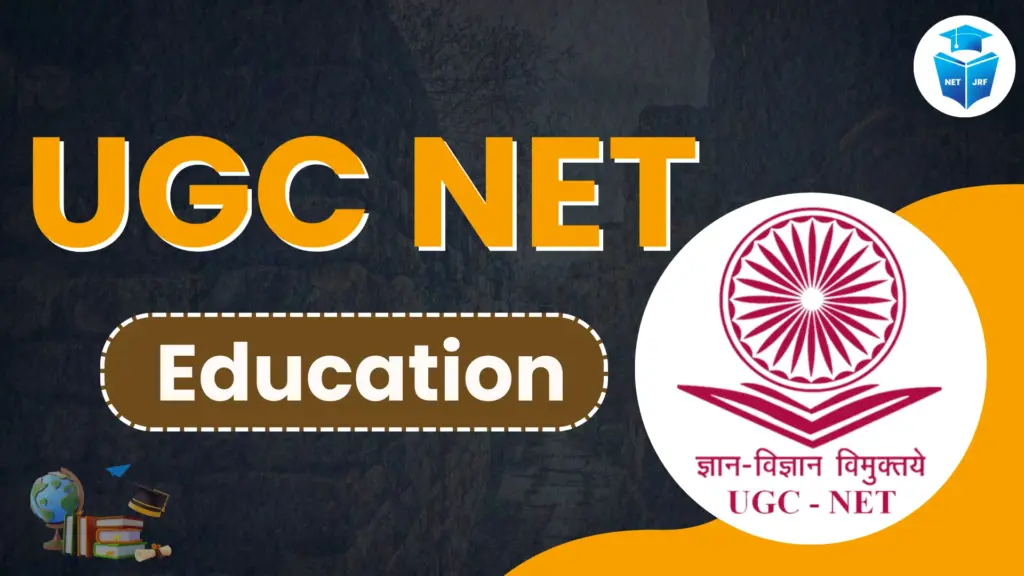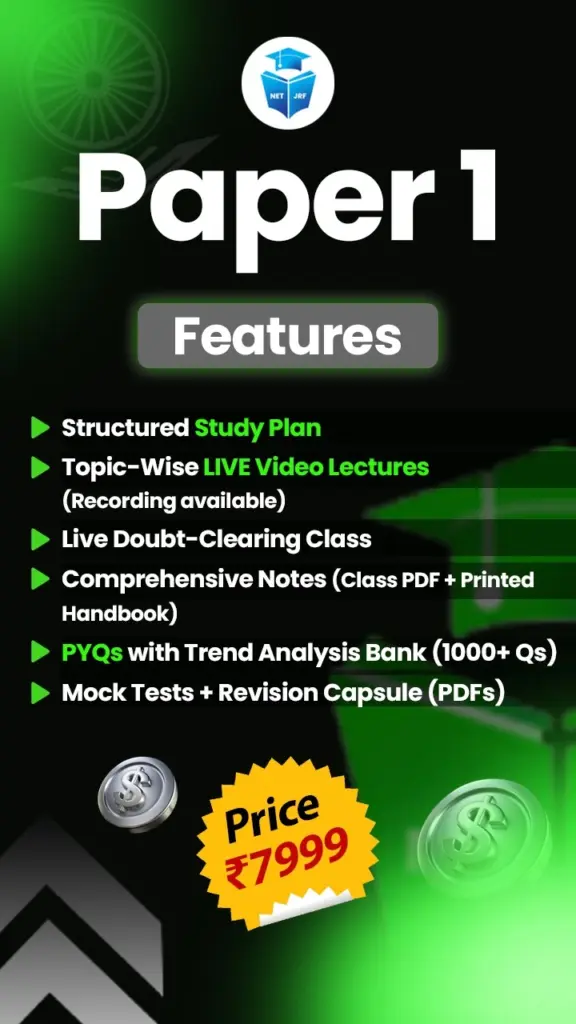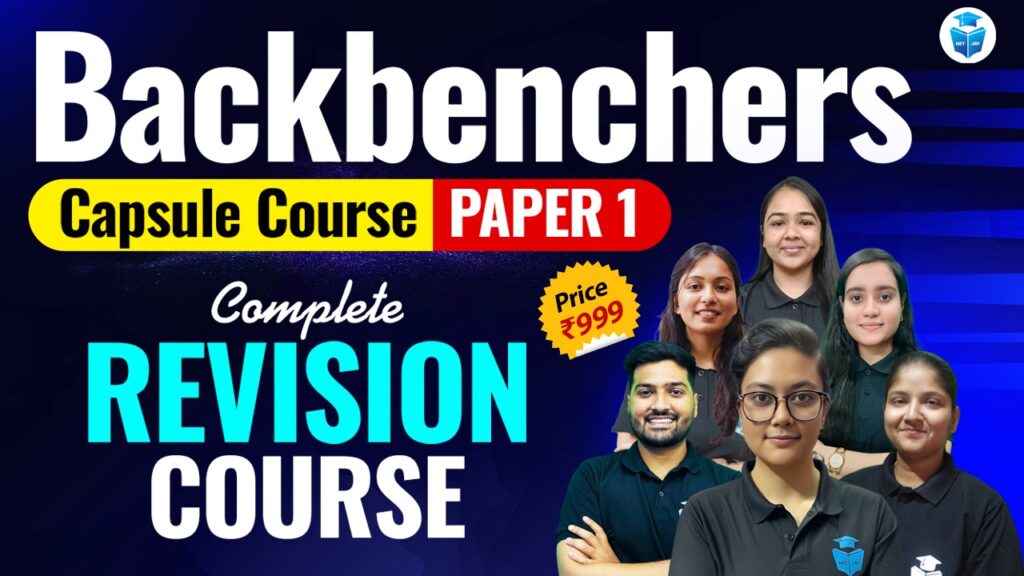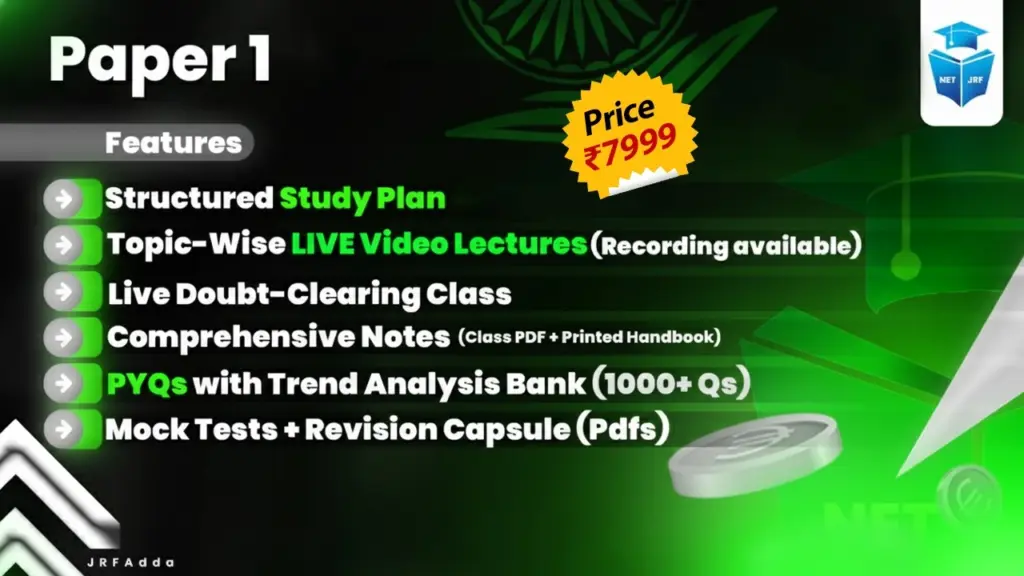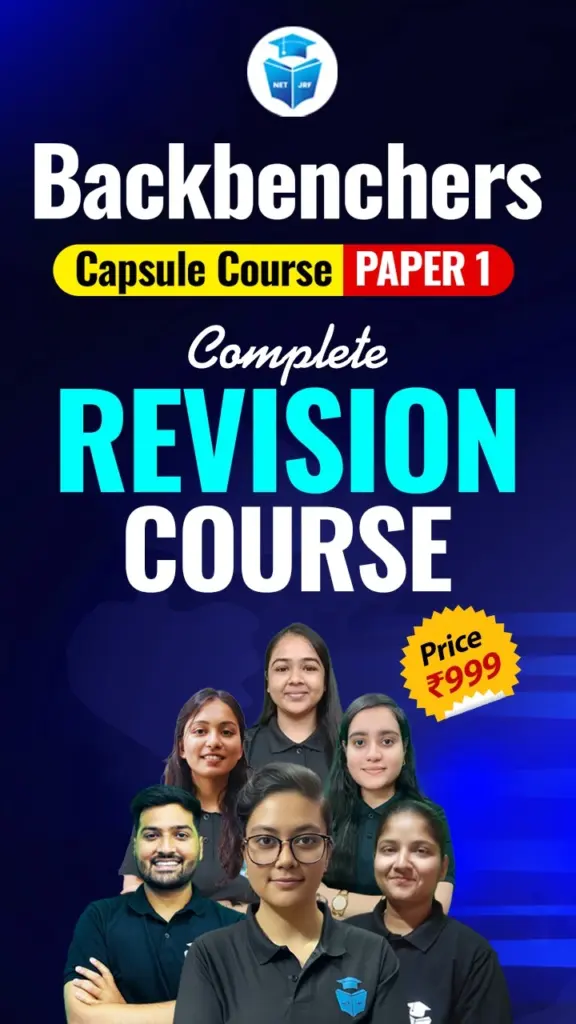UGC NET Arab Culture and Islamic Studies 2025 has been officially conducted by the University Grants Commission (UGC) on 6th January 2025 in Shift 1. Candidates preparing for the UGC NET 2025 in Arab Culture and Islamic Studies must check the subject-wise syllabus and exam pattern to ensure comprehensive preparation.
This article provides a complete guide on UGC NET Arab Culture and Islamic Studies 2025, including syllabus overview, eligibility criteria, exam pattern, previous year papers, and direct PDF links for syllabus download in both Hindi and English.
UGC NET Arab Culture and Islamic Studies 2025 Exam Analysis 6 Jan 2026
UGC NET Arab Culture & Islamic Studies exam (6 January 2026, Shift 1, Dec 2025 cycle) was rated moderate overall, mirroring June 2025 patterns.
Paper 1 remained easy-moderate with balanced coverage of teaching/research aptitude, reasoning, data interpretation, ICT, environment, and higher education—enabling confident, good attempts of 40-45 out of 50 questions.
Also Read: UGC NET Paper 1 Exam Analysis 2025 December
Paper 2 emphasized classical and contemporary Islamic civilization alongside Arabic heritage, spanning Qur’anic studies, Hadith, Fiqh, Sufism, Arabic literature, Islamic dynasties, and modern Arab thought. Factual and analytical questions demanded deep knowledge of scholars, historical events, and classical texts, proving demanding yet scoring for prepared candidates at 60-65 attempts out of 100.
Combined safe scores target 125-135/200 for Assistant Professor qualification, with higher thresholds for JRF.
Also Read: UGC NET Exam Analysis 2025 December
UGC NET Arab Culture and Islamic Studies 2025 Overview
The UGC NET Arab Culture and Islamic Studies 2025 exam is conducted by the National Testing Agency (NTA) to determine eligibility for Assistant Professorship and Junior Research Fellowship (JRF) in Indian universities and colleges. The exam assesses the candidate’s understanding of Islamic history, theology, culture, and key contributions of scholars within the Arab world.
| Particulars | Details |
| Exam Name | UGC NET (National Eligibility Test) |
| Conducting Body | National Testing Agency (NTA) |
| Subject | Arab Culture and Islamic Studies |
| Mode of Exam | Computer-Based Test (CBT) |
| Papers | Paper 1 (General), Paper 2 (Subject-specific) |
| Total Questions | 150 (Paper 1 – 50, Paper 2 – 100) |
| Total Marks | 300 (Paper 1 – 100, Paper 2 – 200) |
What is UGC NET Arab Culture and Islamic Studies?
UGC NET Arab Culture and Islamic Studies 2025 is a subject-specific national-level examination conducted by NTA under the supervision of UGC. The exam evaluates candidates’ in-depth knowledge of Arab history, Islamic traditions, historical empires, scholarly contributions, and cultural movements. Those qualifying can apply for an Assistant Professorship or a Junior Research Fellowship (JRF) in Indian universities and colleges.
UGC NET Arab Culture and Islamic Studies 2025 Eligibility Criteria
To be eligible for the UGC NET exam in Arab Culture and Islamic Studies:
- Education Qualification: Master’s degree in Arab Culture, Islamic Studies, or relevant discipline with at least 55% marks (50% for reserved categories).
- Age Limit:
- JRF: Not more than 30 years
- Assistant Professor: No upper age limit
- Relaxation: Up to 5 years of age relaxation for SC/ST/OBC/PwD and women candidates.
Also Read: UGC NET Eligibility Criteria 2026
UGC NET Arab Culture and Islamic Studies 2025 Exam Pattern
The UGC NET 2025 exam for Arab Culture and Islamic Studies consists of two papers conducted in a single session. Both papers contain objective-type multiple-choice questions (MCQs).
- Paper 1 is common for all candidates and tests general teaching and research aptitude, reasoning ability, comprehension, and more.
- Paper 2 is subject-specific and tests in-depth knowledge of Arab Culture and Islamic Studies.
| Paper | Subject | Questions | Marks | Duration |
| Paper 1 | General Aptitude (Teaching, Research, Reasoning, etc.) | 50 | 100 | 1 Hour |
| Paper 2 | Arab Culture & Islamic Studies (Subject Specific) | 100 | 200 | 2 Hours |
UGC NET Arab Culture and Islamic Studies Syllabus 2025 – Unit-Wise Topics
The syllabus for UGC NET Arab Culture and Islamic Studies Paper 2 is divided into ten comprehensive units, each focusing on significant historical, cultural, religious, and philosophical developments within Islamic civilization. Below is the unit-wise breakdown:
Emergence of Islam and Khilafat-e-Rashidah
- Pre-Islamic Arabia: Society, culture, and religion before Islam.
- Life of Prophet Muhammad (PBUH): Early life, revelations, migration (Hijrah), and prophethood.
- Formation of Islamic State: Establishment of the Muslim community in Madinah.
- Caliphate under the Rightly Guided Caliphs: Abu Bakr, Umar, Uthman, and Ali – their governance, expansions, and challenges.
The Umayyads
- Establishment and Rule: Rise and administration of the Umayyad dynasty.
- Arabisation: Spread of the Arabic language, administrative reforms.
- Contributions: Architecture, coinage, and cultural integration.
The Abbasids
- Governance: Centralization of power and court culture.
- Socio-cultural Developments: Advances in education, arts, and sciences.
- Religious Scholarship: Development of Hadith, Fiqh, theology, and trade networks.
Arabs in Spain & Sicily
- Umayyads in Spain: Cultural flowering under Cordoba’s rule.
- Scientific and Cultural Contributions: In astronomy, philosophy, education, architecture, and translation movements.
Eastern and Western Dynasties
- Dynasties: Ghaznavids, Saljuqs, Fatimids, Mamluks, and others.
- Contributions: Military strength, scholarship, and architectural legacy.
Ottoman and Safavid Empires
- Prominent Rulers: Key sultans and their contributions.
- Shi’ism in Safavid Iran: Religious policies and impact.
- Social and Military Systems: Janissaries, administration, and social structure.
Islam in India
- Spread of Islam: Early contact in Kerala to Mughal rule.
- Educational Institutions: Madrasas, scholars, and literary contributions.
- Sufism: Orders like Chishtiya, Suhrawardiya, and their impact on society.
Islamic Sciences
- Quranic Teachings: Revelation, compilation, and interpretation.
- Hadith: Compilation, authentication, and classification.
- Tafsir and Fiqh: Commentaries on the Quran and development of Islamic jurisprudence.
Muslim Philosophy & Sufism
- Classical Philosophers: Al-Farabi, Ibn Sina, Al-Ghazali, Ibn Rushd, etc.
- Sufi Orders: Principles, practices, and major figures.
- Contributions to Sciences: Mathematics, medicine, astronomy, and philosophy.
Modern Trends and Movements
- Reform Movements: Impact of colonialism and reformers in Egypt and India.
- Key Thinkers and Groups: Sir Syed Ahmad Khan, Wahhabism, Ikhwan al-Muslimun, Jamaat-e-Islami, and others.
Also Read: UGC NET Exam Pattern 2026 For Paper 1 & 2
UGC NET Arab Culture and Islamic Studies Syllabus PDF Download
Candidates preparing for the UGC NET Exam 2026 in Arab Culture and Islamic Studies can download the official syllabus PDF to get a detailed understanding of the topics covered. The syllabus is available in both English and Hindi languages. It includes important themes such as Islamic history, Quranic studies, Sufi movements, dynasties, and contributions of major scholars and philosophers.
| UGC NET Arab Culture and Islamic Studies 2026 Syllabus PDF Link | |
|---|---|
| UGC NET Arab Culture and Islamic Studies 2026 Syllabus PDF | click here |
Also Read: UGC NET Syllabus 2026 PDF Download
UGC NET Arab Culture and Islamic Studies Previous Year Papers
Practicing previous year question papers is crucial for understanding the question format and difficulty level. Candidates can download the UGC NET Arab Culture and Islamic Studies Previous Year Papers from the official NTA or UGC websites, or from trusted educational platforms.
| Exam Name | Year | Download PDF |
| UGC NET Arab Culture and Islamic Studies (December) | 2025 | Download PDF |
| UGC NET Arab Culture and Islamic Studies (June) | 2025 | Download PDF |
| UGC NET Arab Culture and Islamic Studies | 2024 | Download PDF |
| UGC NET Arab Culture and Islamic Studies | 2023 | Download PDF |
| UGC NET Arab Culture and Islamic Studies | 2022 | Download PDF |
| UGC NET Arab Culture and Islamic Studies | 2021 | Download PDF |
| UGC NET Arab Culture and Islamic Studies | 2020 | Download PDF |
Also Read: UGC NET Previous Question Papers, Last 5 Years’ PDF
Preparation Tips for UGC NET Arab Culture and Islamic Studies
- Focus on weaker areas: Use quizzes and revision sessions.
- Use mock tests and PYQs: Analyze performance.
- Study material: Use NCERT, IGNOU, and authentic Islamic history texts.
- Make notes: Especially for philosophers, Sufi orders, dynasties, and Quranic studies.
- Time management: Practice completing mock papers within 3 hours.
- No negative marking: Attempt all questions smartly.
Conclusion
UGC NET Arab Culture and Islamic Studies 2025 offers a prestigious opportunity to delve into rich Islamic heritage and contribute to academia as a researcher or professor. Download the official UGC NET Arab Culture and Islamic Studies 2025 syllabus PDF, begin strategic preparation, and stay consistent for success in this highly rewarding domain.
UGC NET Arab Culture and Islamic Studies 2025 FAQs
What is the syllabus for UGC NET Arab Culture and Islamic Studies 2025?
The syllabus includes ten comprehensive units covering Pre-Islamic Arabia, Prophet Muhammad’s (PBUH) life, Khilafat-e-Rashidah, major Islamic dynasties (Umayyads, Abbasids, Ottomans), Islamic sciences (Quran, Hadith, Tafsir, Fiqh), Muslim philosophy, Sufism, and modern reform movements like Wahhabism, Ikhwan al-Muslimun, and Sir Syed Ahmad Khan’s contributions.
What is the eligibility for UGC NET Arab Culture and Islamic Studies 2025?
Candidates must have a Master’s degree in Arab Culture, Islamic Studies, or a related field with at least 55% marks (50% for SC/ST/OBC/PwD). The upper age limit for JRF is 30 years, with a 5-year relaxation for reserved categories and women.
What is the exam pattern for UGC NET Arab Culture and Islamic Studies 2025?
The exam consists of two papers:
- Paper 1: General Aptitude – 50 questions, 100 marks (1 hour)
Paper 2: Arab Culture and Islamic Studies – 100 questions, 200 marks (2 hours)
Both papers include only multiple-choice questions (MCQs) and are conducted in a single session. There is no negative marking.
How can I download the UGC NET Arab Culture and Islamic Studies 2025 syllabus PDF?
You can download the official syllabus PDF in both Hindi and English from the NTA UGC NET website or other trusted educational portals. The syllabus PDF covers unit-wise topics required for Paper 2 preparation.
Where can I find previous year papers for UGC NET Arab Culture and Islamic Studies?
Previous year papers can be downloaded from the NTA UGC NET official website or reputable exam preparation platforms. These papers help understand the exam format, level of difficulty, and important topics frequently asked in the exam.
